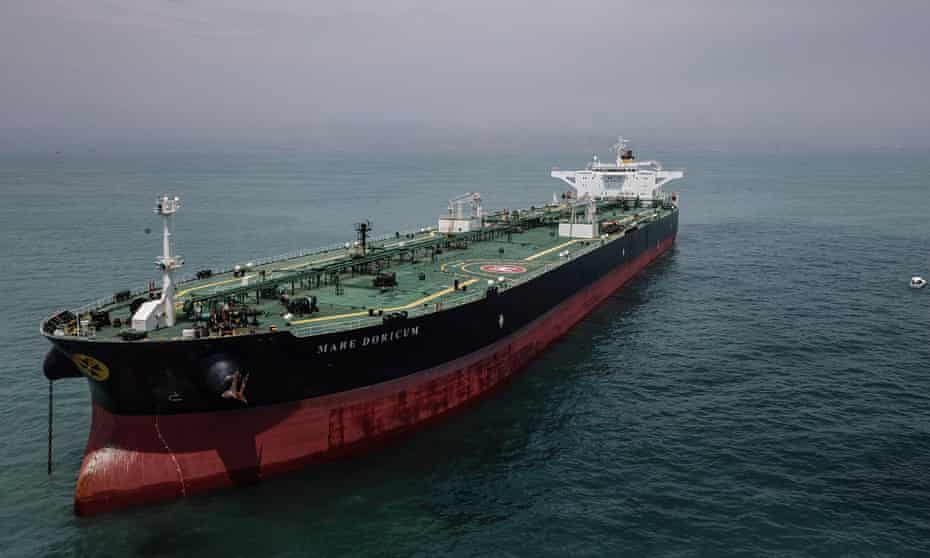Extract from The Guardian
Experts also say not enough is being done to reduce petrol consumption and encourage uptake of electric vehicles.

Thu 21 Apr 2022 03.30 AEST
Last modified on Thu 21 Apr 2022 03.31 AESTAs the war in Ukraine puts the global fuel supply in sharp focus, the Australia Institute found that 91% of Australia’s fuel in the 2021 financial year was imported (including 68% imported as refined crude, as well as 71% of the fuel refined here).
According to the report, released on Thursday, Australia’s largest suppliers are Malaysia, Singapore, South Korea and China.
While International Energy Agency (IEA) guidelines require Australia to hold 90 net import days’ worth of fuel, the report said the country only holds 68 IEA days of reserve – and based on average daily consumption over the past year, current stocks are only expected to last 32 days.
Though the federal government has promised to meet IEA guidelines by 2026, the report revealed it plans to do this not by increasing reserves, but by including barrels of liquid fuel in transit or on ships docked in foreign ports.
During a crisis, the Australia Institute suggested, supply issues could hold up Australia’s fuel elsewhere – as seen with delays to Covid-19 vaccine orders during the pandemic.
“There is no guarantee of these oil supplies reaching Australia within any particular time frame,” the report said.
The report said not enough work had been done to reduce fuel demand. If every passenger vehicle in the nation’s current fleet was a pure electric vehicle, 33% of imported oil could be replaced with domestic electricity; and even if only a quarter were electric, the report said, 8% of total imports would not be needed.
Just 0.8% of Australia’s new vehicle sales in 2020 were electric, compared to the global average of 4.2%.
“Australia is an international laggard when it comes to fuel efficiency,” the Australia Institute’s climate and energy program director, Richie Merzian, said in a statement.
“Weak fuel standards and an absence of a national electric vehicle policy leave Australia among the least fuel-efficient fleets in the OECD, and far behind the rest of the world in electric vehicle uptake.”
Merzian warned that supply for transport fuels is a national security problem.
“High petrol prices are already hurting Australians,” he said.
“The only long-term solution is getting off oil. This involves increasing fuel efficiency and transitioning to electric vehicles.”
In March, a spokesperson for the energy minister, Angus Taylor, said there had been “significant changes to the fuel market both domestically and internationally since the interim liquid fuel security review was compiled”.
They also said the government had taken proactive measures to enhance domestic fuel security, including subsidising both refineries until at least mid-2027 and increasing onshore diesel stocks by 40%.
No comments:
Post a Comment